Becoming The Stigma Breaker in the Black Community
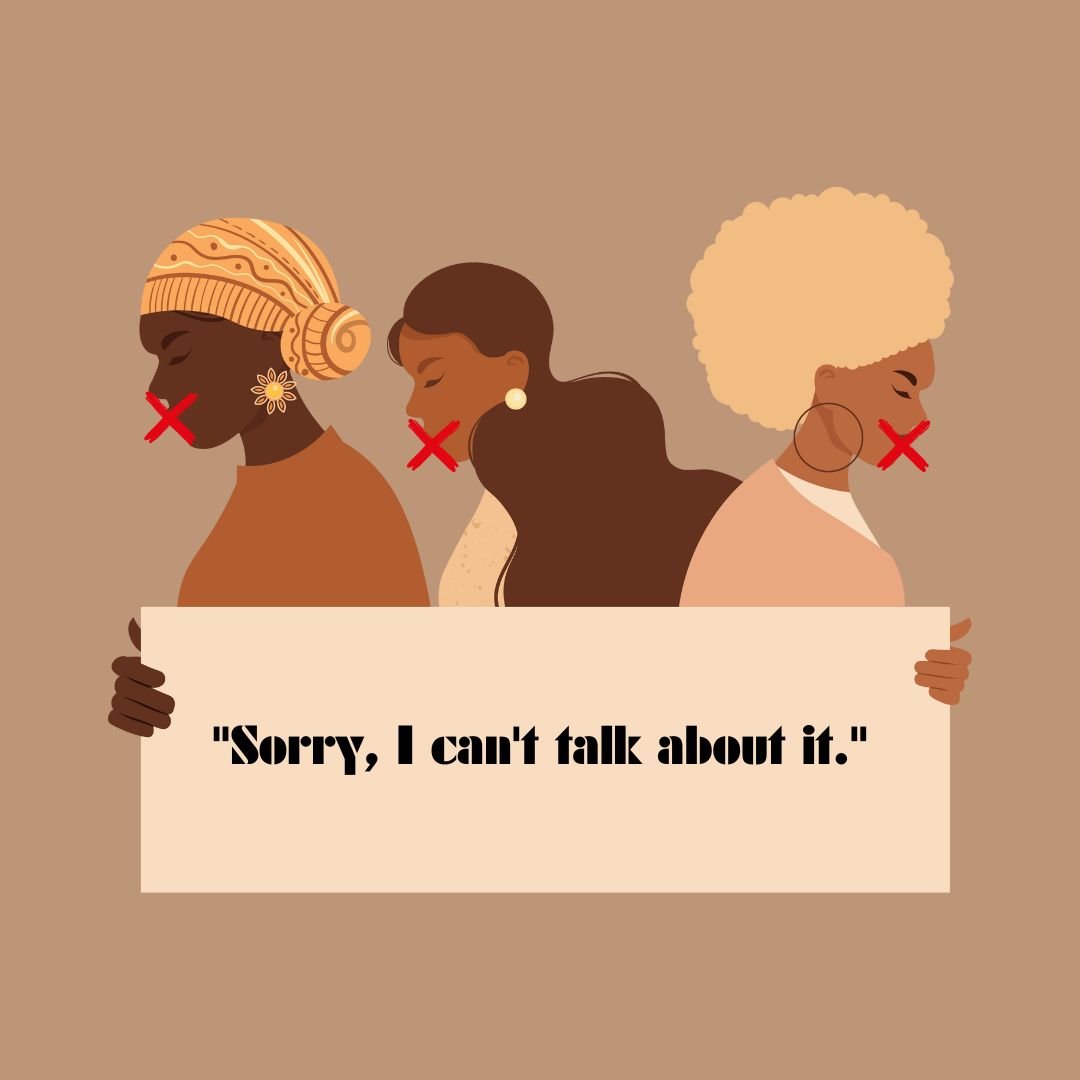
Becoming The Stigma Breaker in the Black Community
What Happens In The House Doesn’t Have To Stay In The House
By Sierra Neal, MA, LAC
A common theme that has prevented Black individuals from receiving therapeutic help for years is shame. Shame for damaging the reputation of the family system. Shame for what exposure from therapy could lead to. Shame for identifying that there is a problem in the first place. Shame for disrupting the norm. Shame for what it could mean for the reflection of parents/elders in the home. Shame for how others view our culture. Shame for revealing family secrets. Shame from rejection and judgment. Shame is what continues to feed the stigma of mental and emotional health in the Black community.
We cannot depend solely on our elected officials to create the change our souls are crying out for within our mental health system. They play a major role, yes, but we must also understand the roles that we can embody to ensure we are taking care of one another’s mental and emotional health.
I hope that after reading this article, you have taken the knowledge, tools, and tips to go out into your community and become a stigma-breaker.
The Truth About Black Mental Health & Why Finding a Black Therapist Matters
According to Mental Health America, 13.4% of the U.S. population identifies as African-American or Black. Within this statistic, more than 16% reported having a mental illness within the past year, which equates to over 7 million people. Statistics show us that more than 50% of African-American individuals have developed negative beliefs regarding seeking mental health services. There are many contributing factors as to why this is, but one major factor is the mistrust Black individuals have within the mental health care system.
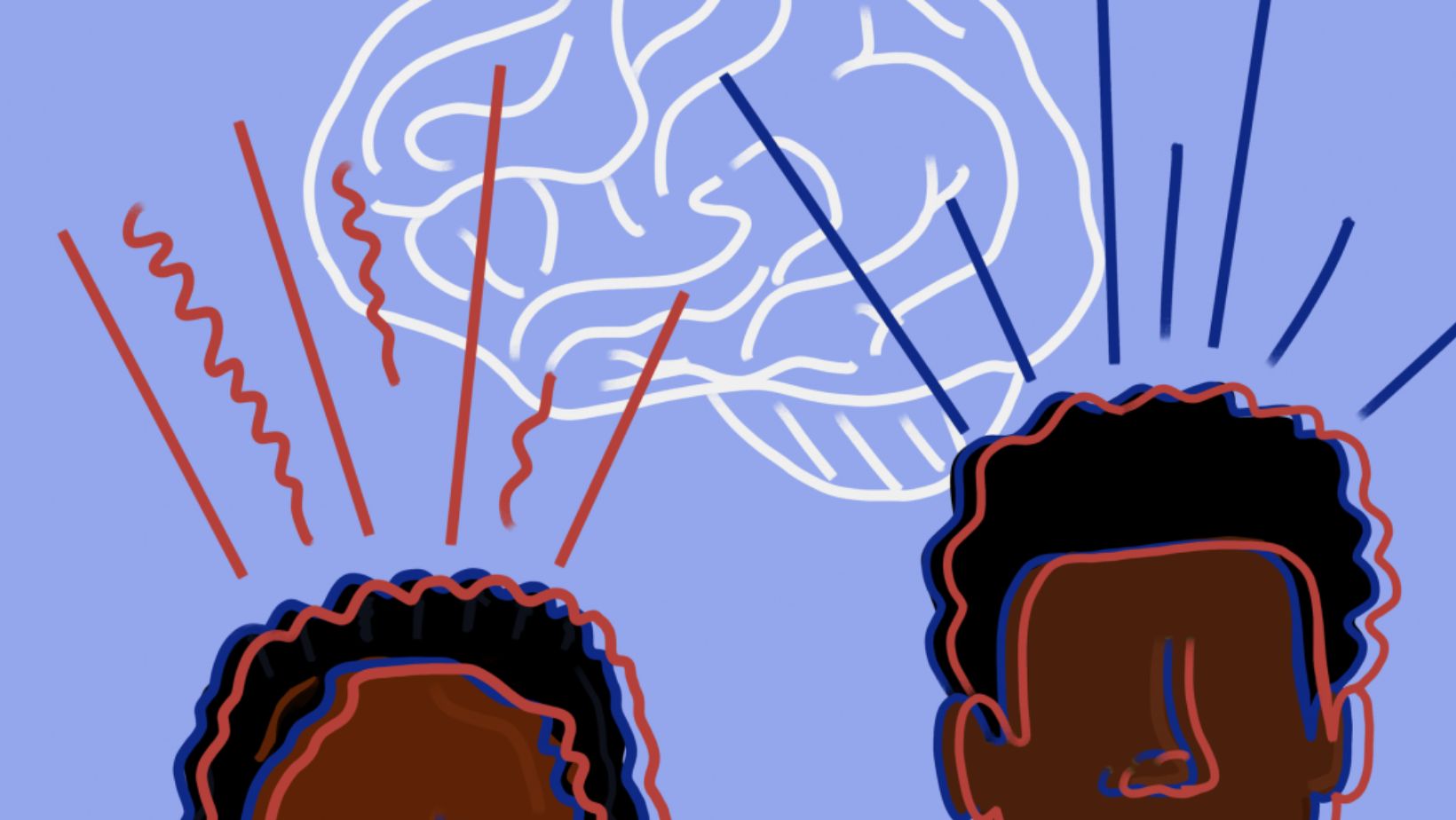
Representation is crucial to your healing journey! When building a professional relationship with your therapist, establishing a sense of safety and trust is one of the most important factors that determine the success of the therapeutic process. However, due to the mistrust of the mental health care system, Black clients become easily hesitant to develop that trust. Having a Black therapist who understands these concerns and fears, provides a welcoming space to build a trusting relationship that makes a remarkable difference.
There are several other reasons why finding a Black therapist is important to Black clients:
1.) You have the freedom to be yourself at the core
2.) Mannerisms, verbal/ body language, AAVE, and eye contact that are specific to the Black community are acknowledged in connection
3.) What’s understood between you and your therapist won’t have to be explained
4.) The ability to bond feels natural
5.) You won’t have to waste your energy and time fighting against harmful stereotypes
6.) Your negative racial experience(s) won’t be downplayed or denied
Although the percentage of Black therapists and psychologists in the U.S. is a small number, it is worth every attempt to find a provider who can cater uniquely to your needs and provide affirming and culturally sensitive care.
How You Can Become a Stigma Breaker
– What Happens In The House Doesn’t Have To Stay In The House
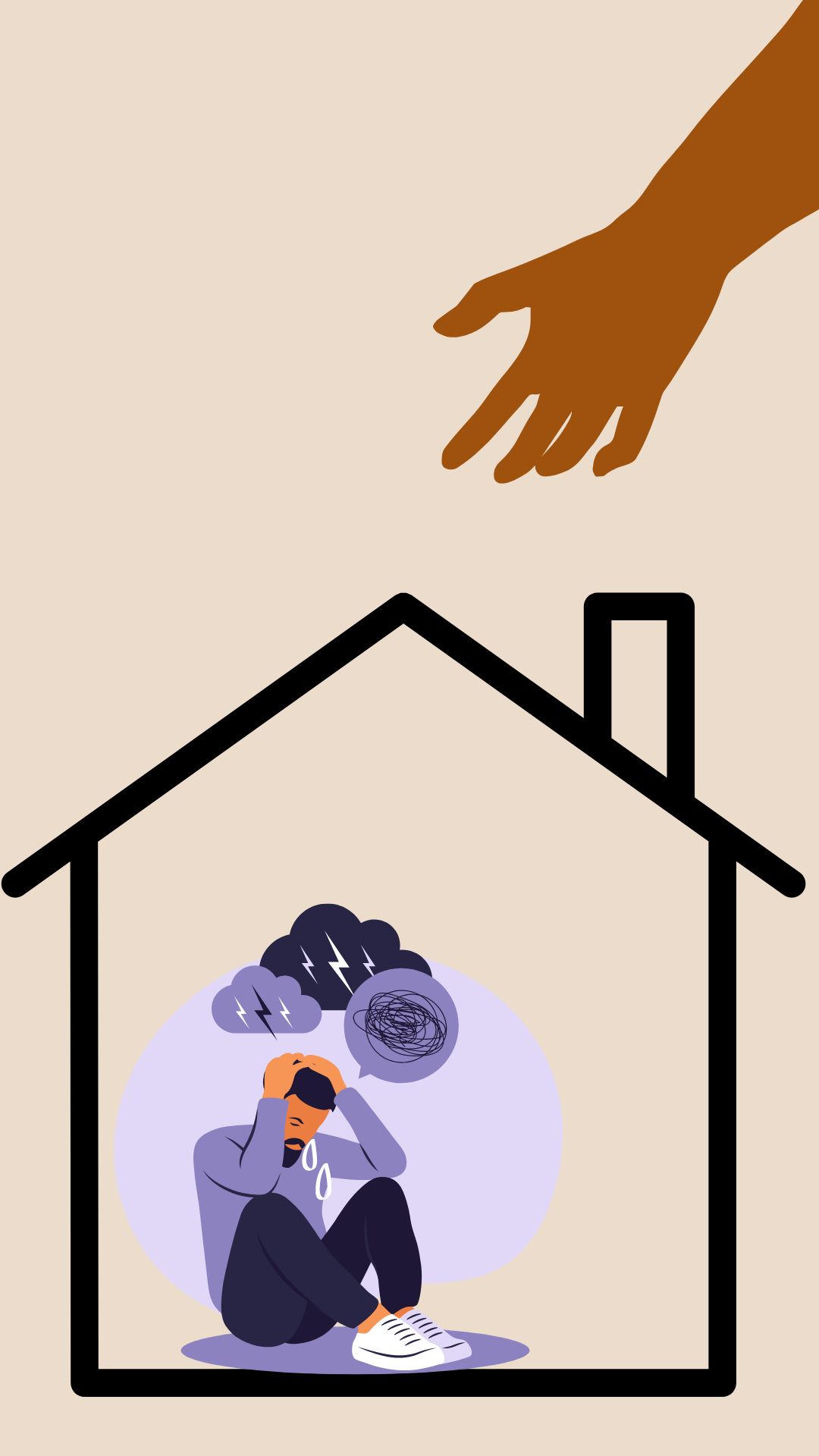
I’m pretty sure you’ve heard the statement before that has rung through many homes in the black community “What happens in this house, stays in this house!” Meaning- Don’t air the family’s dirty laundry and don’t talk about our business to anyone besides the people within the 4 walls of your home. Trust me, I understand the nature of respecting one another’s privacy, however, this rule is problematic and has contributed to deeply silenced black voices that have provided room for the black mental health stigma to grow. In providing context, this rule is primarily about talking to friends, family members, neighbors, and teachers about what occurs within the family home. However, it can easily spill over into the message of “don’t talk to anyone,” which can be harmful.
Every day, we are plagued by abuse, neglect, sexual assault, molestation, suicidal thoughts, financial difficulties, marital issues, anger, anxiety, grief, betrayal, and depression in a severe state of isolation within the Black community because it has been ingrained in our blood that “what happens in this house, stays in this house.” Our secrets are making us sick.
It’s time to place more emphasis on healing, growing, and processing our pain than maintaining the concerns of other people’s perceptions of us. It’s time to drastically switch the narrative and say “what happens in this house, DOESN’T have to stay in this house.” You have the right to seek help. You have the right to speak up about the issues that concern your day-to-day life. You have the right to process trauma safely. You have the right to expose secrets that have kept you from accessing your true healing. You have the right to move beyond what the culture has told you to do. You have the right to no longer carry the weight of shame and embarrassment on your back. You have the right to go to therapy and share in confidence what has been happening in your life. You have the right to receive help without being perceived as “weak.” Judgment from the black community for seeking mental health treatment is not worth your life.
I refuse to allow this rule to dictate the volume of my voice. I refuse to watch others fall victim to a deadly silence that has succumbed so many to death by suicide. I refuse to watch another generation suffer. I pray and hope you will stand with me as we create change for our brothers and sisters!
There are ways to become a stigma-breaker and change the cultural narrative of this rule. While there is surely a demanding need for policy change, addressing the barriers to accessing mental health care, and removing systematic hurdles in our community, there are also powerful actions and meaningful steps that we can take today to destigmatize how we care for one another’s mental health within our black communities.
1.) Believe the Voices Being Spoken
– As a therapist in private practice and working in behavioral health hospitals, too often I bear witness to how others are treated once they share and discuss their mental health battles with another individual. Oftentimes they are dismissed, invalidated, and unheard in moments of extreme vulnerability. Within the black community, we know this all too well and are oftentimes hit with the response of “Just pray about it,” or “Fix your attitude, you have so much to be grateful for,” or “Just be positive.” These harmful responses often lead those who are disclosing to refrain from seeking professional help and settling deeper into their silence. As stigma-breakers, we must do better and believe others who are disclosing the deepest parts of their hearts. Listen to their words, hold space for them in the moment, do not offer unsolicited advice that belittles or dismisses their feelings, and make sure you follow their lead in how they want to be supported.
2.) Genuine Check-Ins
– Let’s be honest here for a moment. Sometimes, we do fake check-ins on our friends and family, just to check a box and say that we reached out. But we must shift our perspective of what it means to check in with a friend/family member who is struggling with their mental health. Texting “How are you?” or “I am here if you need to talk” is a great start, but it’s not enough. We have to go deeper than the superficial surface level. If we’re going to be stigma-breakers in our community, we have to get to the nitty-gritty and go beyond the basics. Here are some examples of how we can dig deeper and conduct more genuine check-ins with one another:
1.) “Hey, no need to respond right now, but you’re on my mind today. In case I haven’t said this recently, here are 3 things I really appreciate about you. Number one…”
2.) Hey, I want to be part of your plan to help manage this. If things get really bad (whether you tell me or not), and I don’t hear from you…who should I call? What should I do? Do I have permission to just drop by and check on you?”
3.) “Hey, I want to make sure I have a plan when I notice things are getting bad for you again and help you get out of a funk or help boost your mood. What are your favorite snacks, favorite movies, the best way to show up for you, and the best way to make you laugh/smile?”
4.) “Hey, what were your highs (positive moments) and lows (negative moments) of the day? What can I do to help you end your day on a good note?”
3.) Get Educated
– A major issue within the black community is our lack of education about mental health and mental illnesses. We must educate ourselves and others about mental and emotional health basics. Through education, understanding, and developing a deeper knowledge of these topics, we can demolish preconceived notions that have kept us misled or misinformed, we can begin to adapt vocabulary/appropriate language to address mental health conversations with some level of knowledge, and we can provide a deeper understanding of the realities of our friends/family who may be struggling with their mental health.
4.) Remain Open-Minded
– Mental illness does not discriminate. It doesn’t matter your race, what profession you hold, or how much money you have in the bank. Mental illness can affect anyone, and the more we acknowledge this fact, the less frightening mental illness becomes. The more we open our minds about the reality mental illness could have on our fellow human souls, the less likely we are to cast judgment, misunderstand their experiences, and avoid sensitive conversations. Becoming a stigma-breaker means releasing ourselves from our ignorance of what we think we know and exploring different avenues of the life of others.
5.) Talk, Talk, Talk
– It’s time to start speaking up! There is no more room to honor the image that being strong means we are silent and can handle things on our own. We weren’t meant or created to live this life by ourselves. Asking for help does not equate to weakness. It is the strongest and bravest thing anyone could ever do. Start conversations about mental health within your inner circle. Ask your teachers/employers how they can honor the well-being of your mental health this month and moving forward. Be honest about how you’re truly feeling, instead of saying “I’m fine,” when you really aren’t. Talk to a trusted friend, adult, therapist, teacher, and anyone with wisdom who can provide a safe space and validate your experiences. Just open your mouth and talk! This is how we break the stigma, save our lives, and move toward a better place of healing!
From The Heart of a Black Female Therapist To You
Dear Healing You,
If you’re reading this, I hope you see yourself between these lines.
I am writing this letter to you as a Black female therapist, but first as a human. Let’s strip away the titles, the numerous hats of identity, and the labels for a second. Let’s just be humans together for a moment through this literary exchange.
First things first, thank you for making it to another day. Thank you for allowing your lungs to take another breath. Thank you for deciding to hold on a little longer. You belong here. You deserve to take up space. You are needed. You are special. Your existence is crucial. You are necessary. You deserve life. You are lovely. You matter. You are worthy. These are just some words I believe you need to hear more often. Even if you don’t believe these all about yourself just yet, I believe them for you.
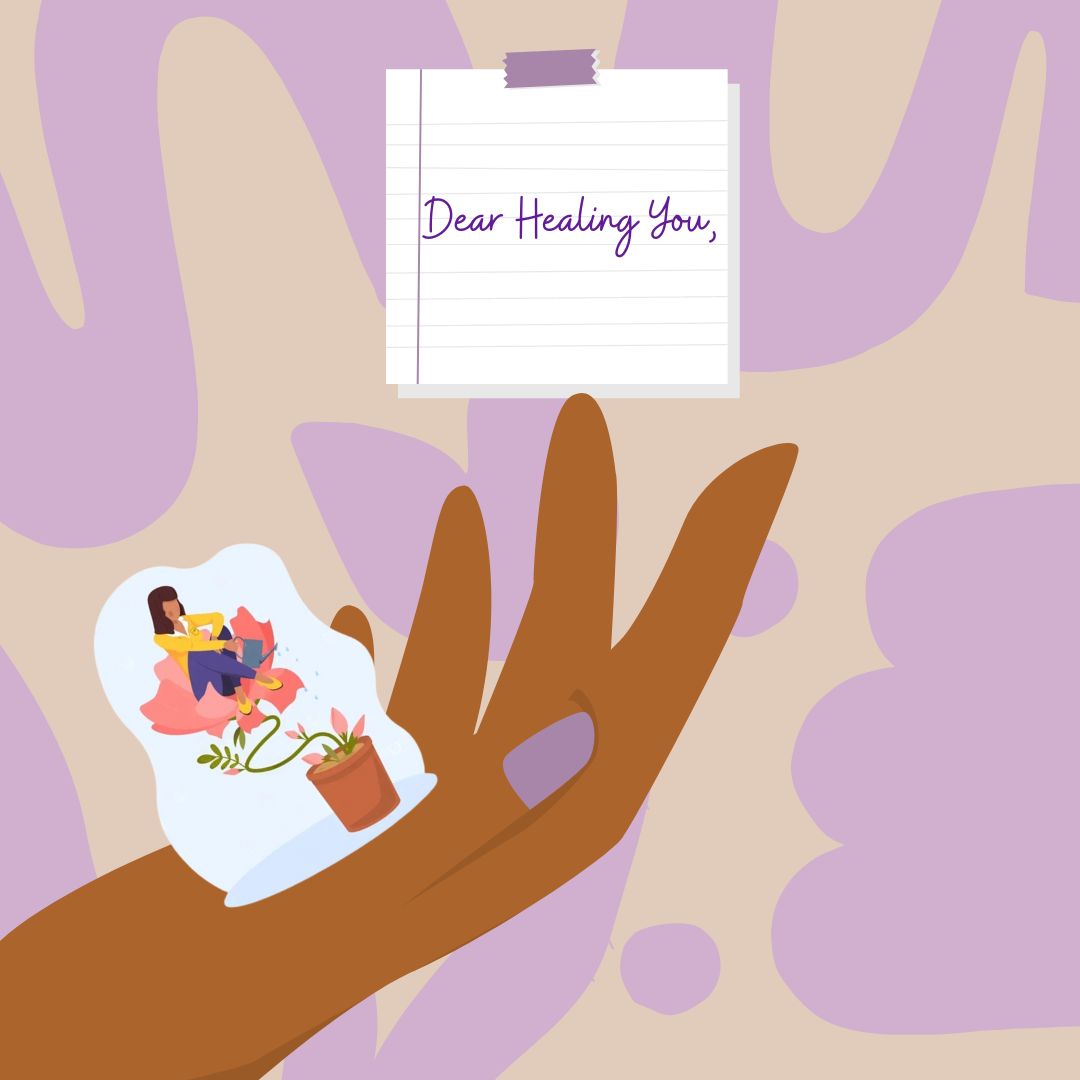
Not being heard, acknowledged, or respected is a reality for many Black individuals, costing them their lives. One of the sole reasons for my commitment to becoming a therapist was because I became tired of seeing my people dying. Dying at the cost of being silenced, shamed, suffocated, lonely, fearful, and miseducated about therapy and mental health. I was tired of receiving texts that another friend had taken their life, I was tired of attending funerals, and I was tired of hearing the same line “Therapy is not for our kind.”
I am writing to tell you that therapy is for YOU! You are deserving of the help despite what our culture says about it and despite what your family thinks about it. Spaces are being created for you and molded for you to carry the matters of your heart and mind tenderly. You don’t have to face this world alone anymore and you don’t have to carry the weight on your shoulders by yourself anymore. We can carry it together, one step at a time, towards a restful place of healing!
Something extraordinary happens when one person decides to trust another by sharing their most private feelings and experiences. Something even more special happens when that person looks like you. You build a different type of therapeutic connection.
As a therapist, I want you to know that I extend my heart and care deeply about you and what takes up space in your mind. I encourage you to bring your whole and authentic self to therapy, to allow yourself to experience any emotion or thought freely, to take the mask off for a moment, to breathe in the air that was meant specifically for you, to settle comfortably in your beautiful skin, and to speak your story unapologetically. It is my genuine hope that every individual who journeys along this therapeutic path will walk away with a renewed sense of understanding and self-appreciation, but most importantly to be seen, to be heard, and to be valued in their entirety.
So join me and let’s heal!
With love and light,
Sierra
Resources
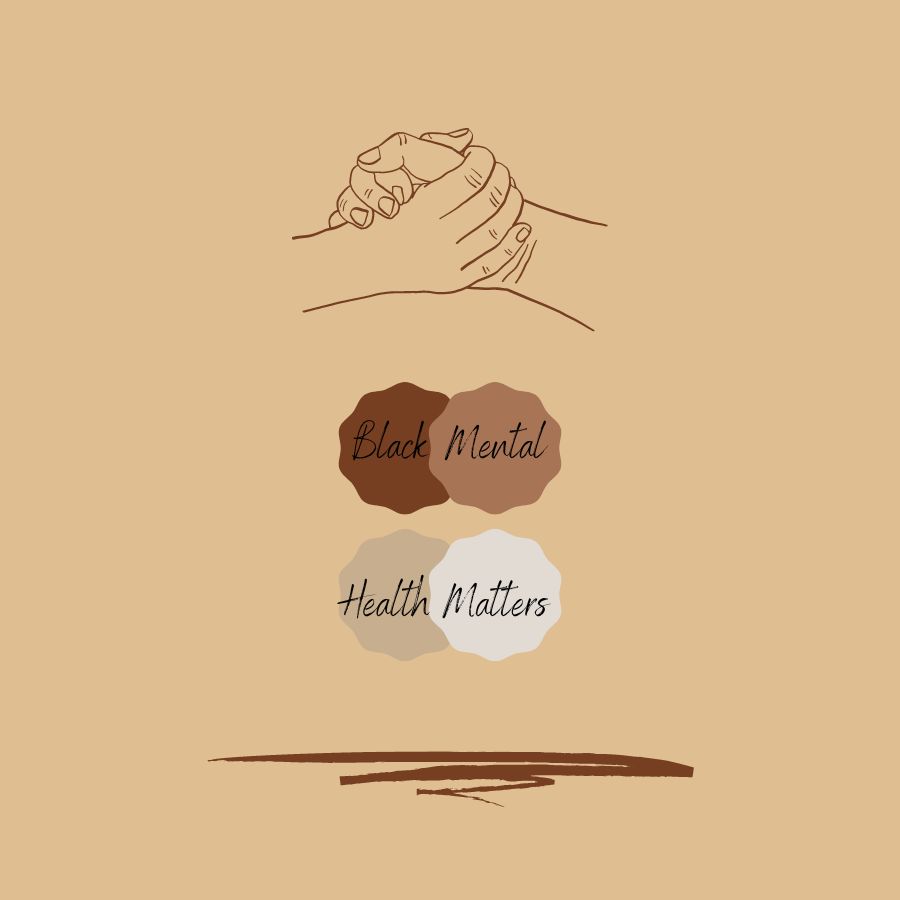
Searching for a therapist in our 2023 mental health climate is already a challenging struggle that sometimes feels defeating and frustrating. With the 4% of Black therapists in the U.S., this creates even more of a barrier to finding a therapist that can provide a safe and trustworthy space to process issues related to Black culture, oppression, discrimination, and the concerns of your mind. Here are some resources to help you along your search.
- Podcasts
-Podcasts are a powerful storytelling tool and a great way to connect us all through community. Listening to a mental health podcast by Black people for Black people is a great way to receive raw, unfiltered, and honest conversations that mirror the beauties and struggles of your identity. Below are some Black mental health podcasts that are actively breaking that stigma. Check them out!
- Therapy For Black Girls –https://therapyforblackgirls.com/podcast/
- Let’s Talk Bruh- https://www.letstalkbruh.com/
- Black Mental Health Matters with D. Kerry-Ann- https://www.drkerryann.net/
- The Blind Stigma Podcast- https://theblindstigma.com/podcast.html
- Between Sessions- https://www.melaninandmentalhealth.com/category/between-sessions/
- Questions You Have A Right To Ask
-Remember!: Although you found a therapist that shares the same identity/race as you, this does not necessarily mean that they are a right fit for you. Asking questions about values that are important to you is a great start. Here are some sample questions to ask your therapist surrounding racial/cultural responsiveness to help you navigate if they are a right fit for you.
- “Can you describe your knowledge of safety risks related to my identity as a Black person?”
- “How would you describe your experience treating clients who share my Black identity?”
- “What cultural competence and anti-racism training have you received?
- “What is your practice’s position on the mental health impact of navigating systems of oppression, racism, and racial violence?”
You can read more questions about affirming mental health providers on Mental Health America’s site here: https://screening.mhanational.org/content/https-screening-mhanational-org-content-questions-help-qtbipoc-find-affirming-mental-health-providers/?layout=actions_a
- Where To Find The Right Therapist
-Below is a list of sites that will help you in your search to find a Black therapist or therapist of color:
1.) Black Emotional & Mental Health Collective- https://beam.community/
2.) Black Female Therapists- https://www.blackfemaletherapists.com/
3.) Black Girls Smile-https://www.blackgirlssmile.org/resources
4.) Black Men Heal- https://blackmenheal.org/
5.) Boris Lawrence Henson Foundation- https://borislhensonfoundation.org/
6.) Clinicians of Color- https://www.cliniciansofcolor.org/
7.) Inclusive Therapists- https://www.inclusivetherapists.com/
8.) InnoPsych- https://www.innopsych.com/
9.) Open Path Collective- https://openpathcollective.org/
10.) Psychology Today-Find an African-American Therapist- https://www.psychologytoday.com/us/therapists/african-american
11.) Therapy For Black Girls- https://therapyforblackgirls.com/
12.) Therapy for Black Men- https://therapyforblackmen.org/
- The Center For Counseling and Education
At the Center for Counseling and Education, we understand what it means to have a therapist who shares similar cultural experiences, we understand the importance of sharing a safe space to talk with someone who looks like you, and we understand how much it means to you to receive culturally sensitive care. Our therapists at the Center for Counseling and Education are trained professionals who work with children, teens, and adults who are searching for a Black therapist to help them along their healing journey. Connect with one of them today. Contact us for more information on how we can support you on your mental health journey!